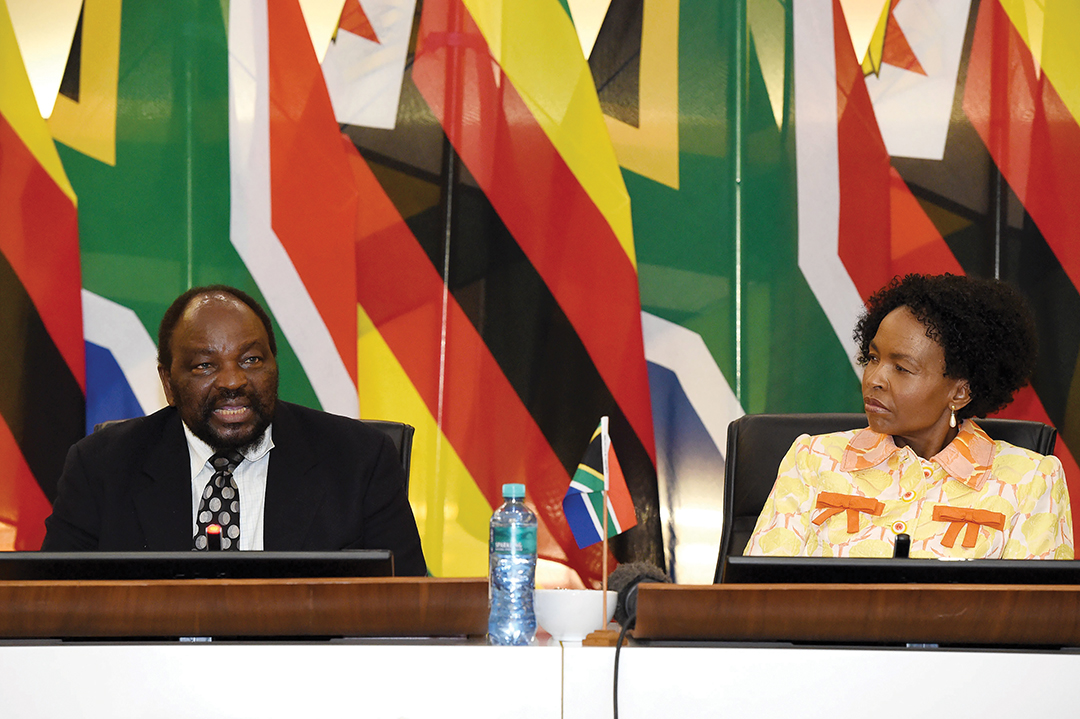
WORK IN A DIGITAL ERA
In the image we see a group of work colleagues discussing and planning their activities. They seem to have fun and an amicable relationship. The future of work passes through team work and co-operation in a spirit of mutual collaboration.
INSIGHTS

ON HUMAN WORK
BY MIKE POTHIER | PROGRAMME MANAGER, SACBC PARLIAMENTARY LIAISON OFFICE
FORTY-TWO years ago, Pope St John Paul II published his encyclical letter, Laborem Exercens, ‘On human work’. In the opening paragraphs of the letter, John Paul notes that “human work is a key, probably the essential key, to the whole social question.” Human work takes place “in the midst of many tensions, conflicts and crises, which, in relationship with the reality of work, disturb the life of individual societies and also of all humanity.”In these two short quotes alone, there is much on which we in South Africa can reflect.
Time and again, surveys show that the primary social concern of our people is work—or, more accurately, the lack of work. Our very high rates of unemployment have been eating away at our social fabric for decades. Children grow up malnourished and stunted, and unable to learn properly at school. Youth and young adults develop a sense of hopelessness and desperation that can lead to self-destructive and anti-social behaviour. Adults, especially men, find escape in alcohol. Domestic violence and family breakdown are commonplace.
All these “tensions, conflicts and crises” are related to the question of work, and there is no doubt that they “disturb the life” of our society very severely. So, have we done enough to resolve the causes of unemployment, and thereby address its disturbing consequences?
Every State of the Nation Address, and every Budget speech, refers to unemployment and to the measures the government plans to undertake in order to create jobs. Indeed, over the years, a variety of policy interventions and programmes have been tried. The Extended Public Works Programme, for example, subsidises municipalities to provide short-term employment for unemployed people, mostly in jobs such as street cleaning, collecting litter, etc.
The Social Employment Fund (SEF) places mainly young people and women in part-time work in fields such as community safety, food kitchens, urban agriculture, and early childhood development. The fund partners with civil society organisations to provide supervision and training, in return for which the organisations are paid a fee. The Goedgedacht Trust, a Catholic rural development organisation based in the Swartland outside Cape Town, is one of those that has partnered with the SEF with very positive results.
The government also offers an Employment Tax Incentive to companies that employ young job seekers. Although it is difficult to measure the effectiveness of this incentive, it seems to be gaining acceptance among employers, and it has recently been extended for a ten-year period.
Worthwhile as these and other government initiatives are, however, they make only a small dent in the huge numbers of unemployed people. South Africa has never had an economy that offered full employment and, now that sectors such as mining and agriculture, which used to employ hundreds of thousands of people, are either declining or automating, reducing unemployment becomes even more difficult.
Some argue that our labour legislation is too protective of employees; if it is too hard for employers to fire people in bad times, they won’t hire them when times are good. The counter-argument is that easy ‘hire and fire’ policies may be appropriate in countries with near-full employment, such as the United States, but they are dangerous in places with historically high unemployment levels.
It is also often pointed out that the creation of jobs is not primarily the responsibility of the state. All the evidence shows that the private sector is the most efficient creator of jobs, especially in the small and medium sectors of the economy. What the state should do, and what it has failed to do in South Africa, according to some views, is to create conditions that are conducive to job creation—policy certainty, ease of starting businesses, favourable tax and regulatory environments, a stable currency and so on.
When unemployment hits 40%, as it has in our country, we can be certain that there will be no short-term solutions; we will have to tackle the problem over decades, not years. We cannot afford not to tackle it—if we don’t, we will find that our social problems simply grow deeper and more difficult to resolve. As Pope John Paul said: “Work is a key to the whole social question.”

